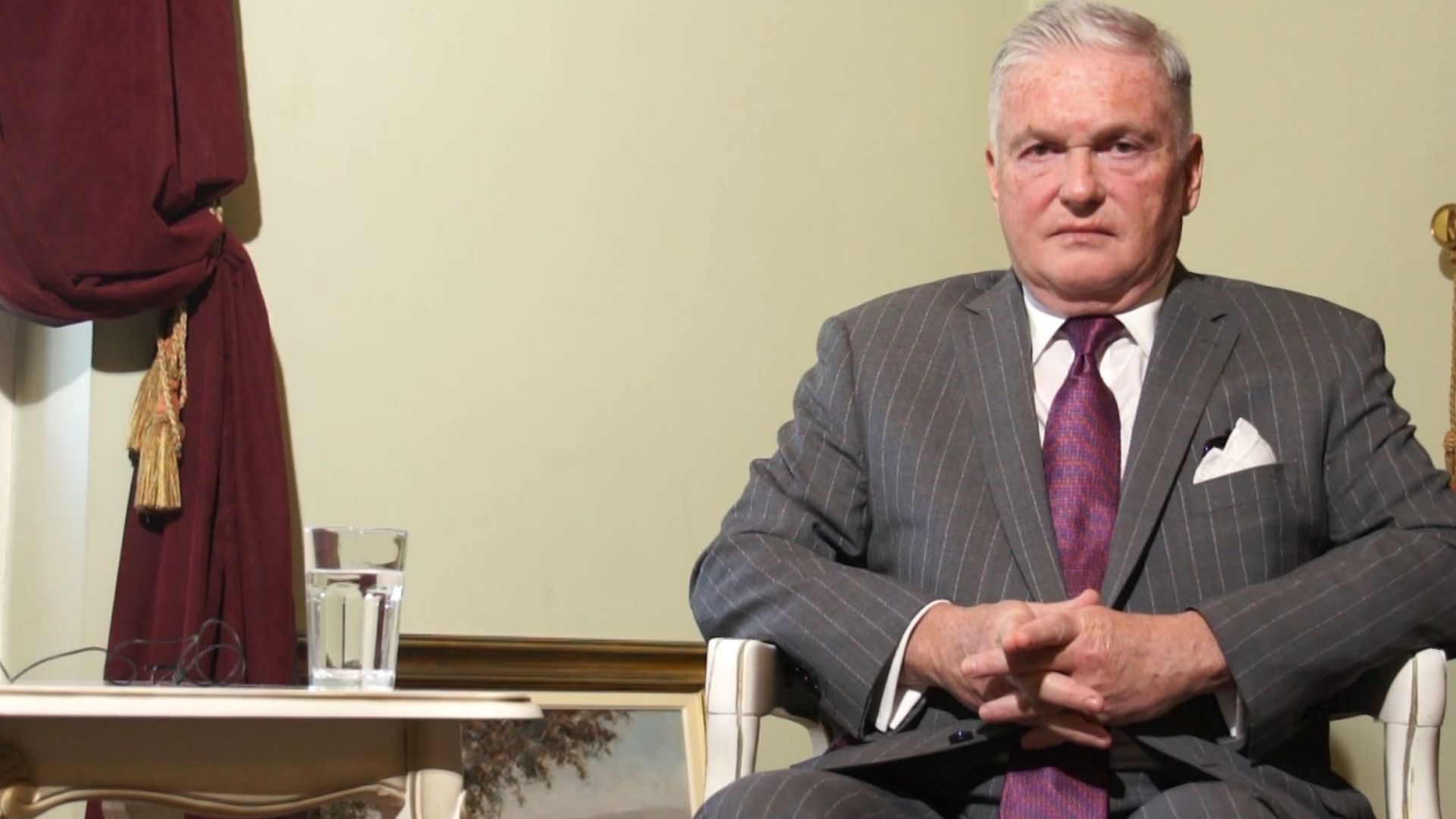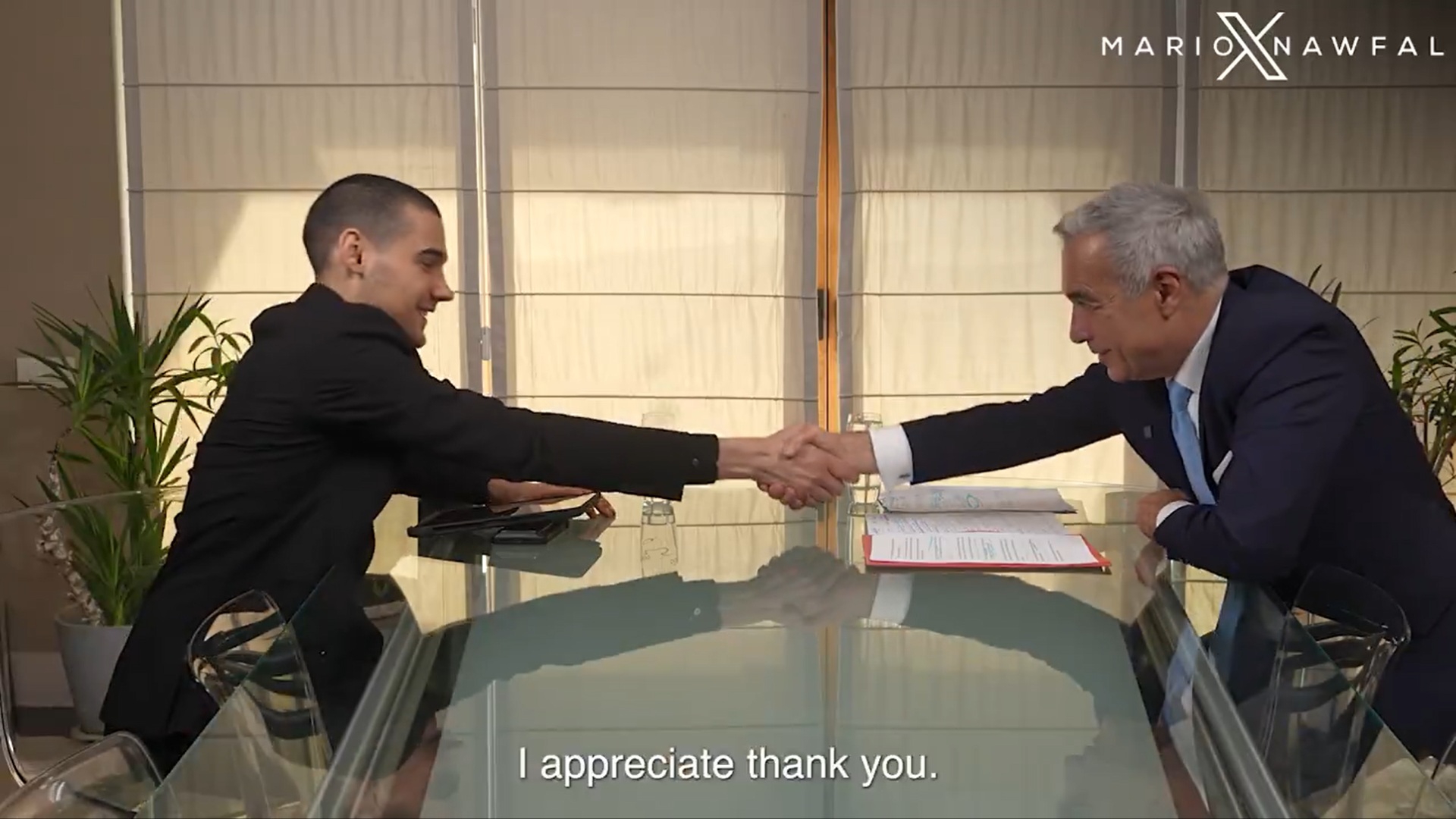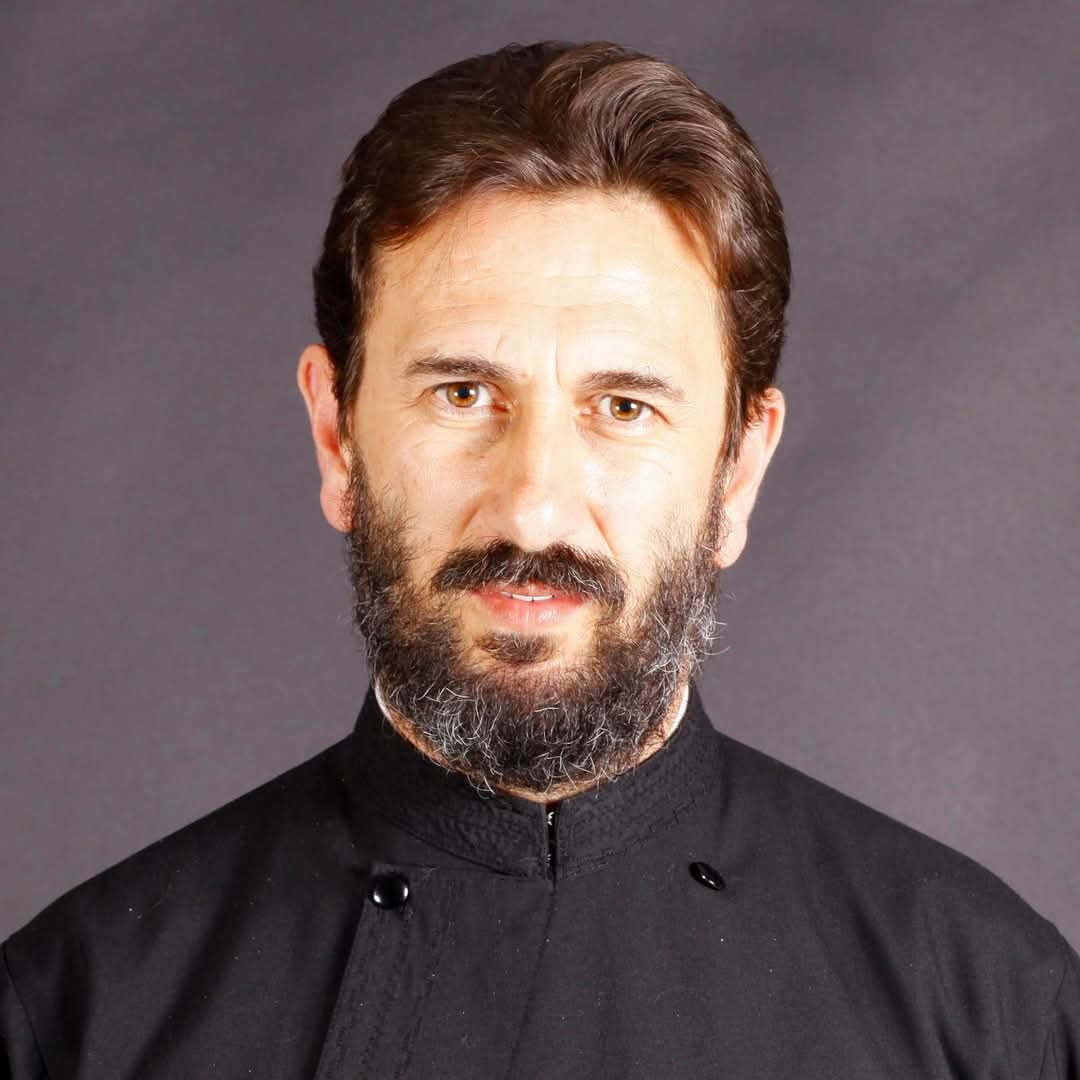SUA are un sistem de asigurări medicale private, iar populaţia beneficiază de acest sistem prin intermediul angajatorului: acesta plăteşte asigurarea medicală pentru salariat. În majoritatea cazurilor angajatorul plăteşte integral poliţa de asigurare medicală, în altele plăteşte o parte (de obicei mai mult de jumătate) iar restul este achitat de salariat. Unii angajatori nu oferă asigurare medicală. Fiecare stat federal are propria legislaţie în domeniu, astfel încît costurile asociate cu asigurarea medicală diferă semnificativ. Astfel, o poliţă tipică de asigurare a unui tînăr sănătos de 25 de ani costă $960 pe an în Kentucky şi $5580 în New Jersey.
Există şi două programe guvernamentale de asistenţă medicală, Medicare şi Medicaid. Primul este un program administrat de guvernul federal şi orientat către furnizarea de îngrijire medicală persoanelor de 65 de ani sau mai în vîrsta. Medicaid este un program administrat de statele federale şi servind doar nevoile medicale ale celor cu venituri mici. Fiind programe publice, finanţarea acestora provine din impozitarea cetăţenilor.
La ora de faţă, aproximativ 86% din populaţia SUA beneficiază de asigurări medicale, fie prin angajator, cumpărată privat sau prin eligibilitate la programele publice.
Administraţia Obama lucrează în prezent la un proiect de reorganizare masivă a sistemului american de asigurări şi servicii medicale. În esenţă, legislaţia pregătită urmăreşte eliminarea treptată a sectorului privat, în paralel cu transformarea statului în principalul furnizor de asigurări şi servicii medicale. Intenţia este de a armoniza SUA cu sistemele aşa-zis universale de asigurări medicale din Europa şi Canada. Universale întrucît toată lumea este garantat asigurată la un unic furnizor de servicii medicale: statul. Ca în orice afacere preluată de stat, calitatea are de suferit, birocraţia e suverană, alternative nu sînt permise sau, în cel mai bun caz, serios îngrădite, ineficienţa şi penuria sînt o stare naturală, iar libertatea de a alege a consumatorului inexistentă sau limitată. Egalité, médiocrité, fraternité.
În dezbaterile pe marginea planului Obama este adesea invocat, în egală măsură de susţinători şi critici, sistemul de sănătate public şi universal din Canada. A fost un sistem foarte bun în anii 50 şi 60, bun în anii 70 şi 80, scîrţîind pe la încheieturi în anii 90 şi intrat într-un proces de sclerozare în primul deceniu al acestui secol. În anii recenţi, provincii ca Alberta, Ontario şi Quebec au permis furnizorilor privaţi să intre limitat pe piaţa de servicii medicale, dar sistemul pe ansamblu este o vacă prea sacră pentru a fi subiectul unei renovări majore. În filmul de mai jos, un american originar din Quebec revine în provincia natală pentru a vedea la faţa locului cum funcţionează sistemul de sanatate spre care se îndreaptă Obama.
The House Health Care Bill: A Blueprint for Federal Control — Un sumar al planului Obama (cost, 1 trilion de dolari în următorii 10 ani)
Obama Doesn’t Have the Only Prescription for Healthcare Reform — O alternativă la planul Obama












![marius-bostan-foto[1] marius-bostan-foto[1]](https://inliniedreapta.net/wp-content/uploads/elementor/thumbs/marius-bostan-foto1-qt9ywoo2b2lgv37b76h9qr5yo6db5vwzoxbuvd4e6o.jpg)












9 Comments
costin
14 July 2009It’s Not An Option
It’s Not An Option
Imperialistu'
14 July 2009Imperialistu'
14 July 2009Imperialistu'
14 July 2009Imperialistu'
14 July 2009Pana si ABC-ul.
Francesco
14 July 2009Obama afirma ca programul sau va elimina sectorul privat din asigurarile medicale! Naked Emperor News
…
24-03-2007
Obama nu este singur, dupa cum afirma si Noel Sheppard, de la Newsbusters, sau Michelle Malkin. El are in spate un intreg aparat al partidului Democrat care inclina catre metode socialiste in asigurarea sanatatii.
Prietenul Transsylvania Phoenix le vorbeste americanilor de filmul Moartea Domnului Lazarescu, expresia a culturii indiferentei sistemului socialist de sanatate.
costin
14 July 2009e oficial, incepind de azi, sanatatea este gratis in America, in pur stil Michael-Moore-ian
DEMS RAM OBAMACARE THROUGH SENATE- 60 Dems Vote to Nationalize Health Care (Video)
dr pepper
14 July 2009costin, a fost un test.
oricum, sunt aproape de o „victorie istorica”.
John Galt
14 July 2009Health Care Is Not A Right
by Leonard Peikoff, Ph.D. Delivered at a Town Hall Meeting on the Clinton Health Plan. Red Lion Hotel, Costa Mesa CA. December 11, 1993
Good morning, ladies and gentlemen:
Most people who oppose socialized medicine do so on the grounds that it is moral and well-intentioned, but impractical; i.e., it is a noble idea — which just somehow does not work. I do not agree that socialized medicine is moral and well-intentioned, but impractical. Of course, it is impractical — it does not work — but I hold that it is impractical because it is immoral. This is not a case of noble in theory but a failure in practice; it is a case of vicious in theory and therefore a disaster in practice. So I’m going to leave it to other speakers to concentrate on the practical flaws in the Clinton health plan. I want to focus on the moral issue at stake. So long as people believe that socialized medicine is a noble plan, there is no way to fight it. You cannot stop a noble plan — not if it really is noble. The only way you can defeat it is to unmask it — to show that it is the very opposite of noble. Then at least you have a fighting chance.
What is morality in this context? The American concept of it is officially stated in the Declaration of Independence. It upholds man’s unalienable, individual rights. The term „rights,” note, is a moral (not just a political) term; it tells us that a certain course of behavior is right, sanctioned, proper, a prerogative to be respected by others, not interfered with — and that anyone who violates a man’s rights is: wrong, morally wrong, unsanctioned, evil.
Now our only rights, the American viewpoint continues, are the rights to life, liberty, property, and the pursuit of happiness. That’s all. According to the Founding Fathers, we are not born with a right to a trip to Disneyland, or a meal at Mcdonald’s, or a kidney dialysis (nor with the 18th-century equivalent of these things). We have certain specific rights — and only these.
Why only these? Observe that all legitimate rights have one thing in common: they are rights to action, not to rewards from other people. The American rights impose no obligations on other people, merely the negative obligation to leave you alone. The system guarantees you the chance to work for what you want — not to be given it without effort by somebody else.
The right to life, e.g., does not mean that your neighbors have to feed and clothe you; it means you have the right to earn your food and clothes yourself, if necessary by a hard struggle, and that no one can forcibly stop your struggle for these things or steal them from you if and when you have achieved them. In other words: you have the right to act, and to keep the results of your actions, the products you make, to keep them or to trade them with others, if you wish. But you have no right to the actions or products of others, except on terms to which they voluntarily agree.
To take one more example: the right to the pursuit of happiness is precisely that: the right to the pursuit — to a certain type of action on your part and its result — not to any guarantee that other people will make you happy or even try to do so. Otherwise, there would be no liberty in the country: if your mere desire for something, anything, imposes a duty on other people to satisfy you, then they have no choice in their lives, no say in what they do, they have no liberty, they cannot pursue their happiness. Your „right” to happiness at their expense means that they become rightless serfs, i.e., your slaves. Your right to anything at others’ expense means that they become rightless.
That is why the U.S. system defines rights as it does, strictly as the rights to action. This was the approach that made the U.S. the first truly free country in all world history — and, soon afterwards, as a result, the greatest country in history, the richest and the most powerful. It became the most powerful because its view of rights made it the most moral. It was the country of individualism and personal independence.
Today, however, we are seeing the rise of principled immorality in this country. We are seeing a total abandonment by the intellectuals and the politicians of the moral principles on which the U.S. was founded. We are seeing the complete destruction of the concept of rights. The original American idea has been virtually wiped out, ignored as if it had never existed. The rule now is for politicians to ignore and violate men’s actual rights, while arguing about a whole list of rights never dreamed of in this country’s founding documents — rights which require no earning, no effort, no action at all on the part of the recipient.
You are entitled to something, the politicians say, simply because it exists and you want or need it — period. You are entitled to be given it by the government. Where does the government get it from? What does the government have to do to private citizens — to their individual rights — to their real rights — in order to carry out the promise of showering free services on the people?
The answers are obvious. The newfangled rights wipe out real rights — and turn the people who actually create the goods and services involved into servants of the state. The Russians tried this exact system for many decades. Unfortunately, we have not learned from their experience. Yet the meaning of socialism (this is the right name for Clinton’s medical plan) is clearly evident in any field at all — you don’t need to think of health care as a special case; it is just as apparent if the government were to proclaim a universal right to food, or to a vacation, or to a haircut. I mean: a right in the new sense: not that you are free to earn these things by your own effort and trade, but that you have a moral claim to be given these things free of charge, with no action on your part, simply as handouts from a benevolent government.
How would these alleged new rights be fulfilled? Take the simplest case: you are born with a moral right to hair care, let us say, provided by a loving government free of charge to all who want or need it. What would happen under such a moral theory?
Haircuts are free, like the air we breathe, so some people show up every day for an expensive new styling, the government pays out more and more, barbers revel in their huge new incomes, and the profession starts to grow ravenously, bald men start to come in droves for free hair implantations, a school of fancy, specialized eyebrow pluckers develops — it’s all free, the government pays. The dishonest barbers are having a field day, of course — but so are the honest ones; they are working and spending like mad, trying to give every customer his heart’s desire, which is a millionaire’s worth of special hair care and services — the government starts to scream, the budget is out of control. Suddenly directives erupt: we must limit the number of barbers, we must limit the time spent on haircuts, we must limit the permissible type of hair styles; bureaucrats begin to split hairs about how many hairs a barber should be allowed to split. A new computerized office of records filled with inspectors and red tape shoots up; some barbers, it seems, are still getting too rich, they must be getting more than their fair share of the national hair, so barbers have to start applying for Certificates of Need in order to buy razors, while peer review boards are established to assess every stylist’s work, both the dishonest and the overly honest alike, to make sure that no one is too bad or too good or too busy or too unbusy. Etc. In the end, there are lines of wretched customers waiting for their chance to be routinely scalped by bored, hog-tied haircutters some of whom remember dreamily the old days when somehow everything was so much better.
Do you think the situation would be improved by having hair-care cooperatives organized by the government? — having them engage in managed competition, managed by the government, in order to buy haircut insurance from companies controlled by the government?
If this is what would happen under government-managed hair care, what else can possibly happen — it is already starting to happen — under the idea of health care as a right? Health care in the modern world is a complex, scientific, technological service. How can anybody be born with a right to such a thing?
Under the American system you have a right to health care if you can pay for it, i.e., if you can earn it by your own action and effort. But nobody has the right to the services of any professional individual or group simply because he wants them and desperately needs them. The very fact that he needs these services so desperately is the proof that he had better respect the freedom, the integrity, and the rights of the people who provide them.
You have a right to work, not to rob others of the fruits of their work, not to turn others into sacrificial, rightless animals laboring to fulfill your needs.
Some of you may ask here: But can people afford health care on their own? Even leaving aside the present government-inflated medical prices, the answer is: Certainly people can afford it. Where do you think the money is coming from right now to pay for it all — where does the government get its fabled unlimited money? Government is not a productive organization; it has no source of wealth other than confiscation of the citizens’ wealth, through taxation, deficit financing or the like.
But, you may say, isn’t it the „rich” who are really paying the costs of medical care now — the rich, not the broad bulk of the people? As has been proved time and again, there are not enough rich anywhere to make a dent in the government’s costs; it is the vast middle class in the U.S. that is the only source of the kind of money that national programs like government health care require. A simple example of this is the fact that the Clinton Administration’s new program rests squarely on the backs not of Big Business, but of small businessmen who are struggling in today’s economy merely to stay alive and in existence. Under any socialized program, it is the „little people” who do most of the paying for it — under the senseless pretext that „the people” can’t afford such and such, so the government must take over. If the people of a country truly couldn’t afford a certain service — as e.g. in Somalia — neither, for that very reason, could any government in that country afford it, either.
Some people can’t afford medical care in the U.S. But they are necessarily a small minority in a free or even semi-free country. If they were the majority, the country would be an utter bankrupt and could not even think of a national medical program. As to this small minority, in a free country they have to rely solely on private, voluntary charity. Yes, charity, the kindness of the doctors or of the better off — charity, not right, i.e. not their right to the lives or work of others. And such charity, I may say, was always forthcoming in the past in America. The advocates of Medicaid and Medicare under LBJ did not claim that the poor or old in the ’60’s got bad care; they claimed that it was an affront for anyone to have to depend on charity.
But the fact is: You don’t abolish charity by calling it something else. If a person is getting health care for nothing, simply because he is breathing, he is still getting charity, whether or not President Clinton calls it a „right.” To call it a Right when the recipient did not earn it is merely to compound the evil. It is charity still — though now extorted by criminal tactics of force, while hiding under a dishonest name.
As with any good or service that is provided by some specific group of men, if you try to make its possession by all a right, you thereby enslave the providers of the service, wreck the service, and end up depriving the very consumers you are supposed to be helping. To call „medical care” a right will merely enslave the doctors and thus destroy the quality of medical care in this country, as socialized medicine has done around the world, wherever it has been tried, including Canada (I was born in Canada and I know a bit about that system first hand).
I would like to clarify the point about socialized medicine enslaving the doctors. Let me quote here from an article I wrote a few years ago: „Medicine: The Death of a Profession.” [The Voice of Reason: Essays in Objectivist Thought, NAL Books, c 1988 by the Estate of Ayn Rand and Leonard Peikoff.]
„In medicine, above all, the mind must be left free. Medical treatment involves countless variables and options that must be taken into account, weighed, and summed up by the doctor’s mind and subconscious. Your life depends on the private, inner essence of the doctor’s function: it depends on the input that enters his brain, and on the processing such input receives from him. What is being thrust now into the equation? It is not only objective medical facts any longer. Today, in one form or another, the following also has to enter that brain: ‘The DRG administrator [in effect, the hospital or HMO man trying to control costs] will raise hell if I operate, but the malpractice attorney will have a field day if I don’t — and my rival down the street, who heads the local PRO [Peer Review Organization], favors a CAT scan in these cases, I can’t afford to antagonize him, but the CON boys disagree and they won’t authorize a CAT scanner for our hospital — and besides the FDA prohibits the drug I should be prescribing, even though it is widely used in Europe, and the IRS might not allow the patient a tax deduction for it, anyhow, and I can’t get a specialist’s advice because the latest Medicare rules prohibit a consultation with this diagnosis, and maybe I shouldn’t even take this patient, he’s so sick — after all, some doctors are manipulating their slate of patients, they accept only the healthiest ones, so their average costs are coming in lower than mine, and it looks bad for my staff privileges.’ Would you like your case to be treated this way — by a doctor who takes into account your objective medical needs and the contradictory, unintelligible demands of some ninety different state and Federal government agencies? If you were a doctor could you comply with all of it? Could you plan or work around or deal with the unknowable? But how could you not? Those agencies are real and they are rapidly gaining total power over you and your mind and your patients. In this kind of nightmare world, if and when it takes hold fully, thought is helpless; no one can decide by rational means what to do. A doctor either obeys the loudest authority — or he tries to sneak by unnoticed, bootlegging some good health care occasionally or, as so many are doing now, he simply gives up and quits the field.”
The Clinton plan will finish off quality medicine in this country — because it will finish off the medical profession. It will deliver doctors bound hands and feet to the mercies of the bureaucracy.
The only hope — for the doctors, for their patients, for all of us — is for the doctors to assert a moral principle. I mean: to assert their own personal individual rights — their real rights in this issue — their right to their lives, their liberty, their property, their pursuit of happiness. The Declaration of Independence applies to the medical profession too. We must reject the idea that doctors are slaves destined to serve others at the behest of the state.
I’d like to conclude with a sentence from Ayn Rand. Doctors, she wrote, are not servants of their patients. They are „traders, like everyone else in a free society, and they should bear that title proudly, considering the crucial importance of the services they offer.”
The battle against the Clinton plan, in my opinion, depends on the doctors speaking out against the plan — but not only on practical grounds — rather, first of all, on moral grounds. The doctors must defend themselves and their own interests as a matter of solemn justice, upholding a moral principle, the first moral principle: self- preservation. If they can do it, all of us will still have a chance. I hope it is not already too late. Thank you.